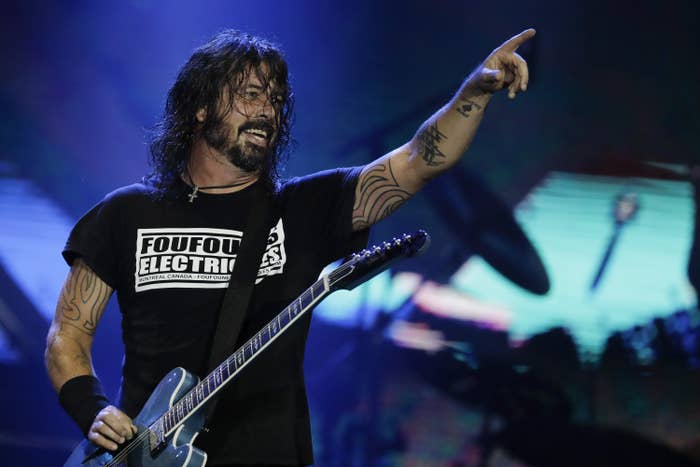
With roughly half the US population fully vaccinated against COVID-19, life as we once knew it has started to return, but at a cost. The virus is still spreading, especially among the unvaccinated, bringing with it a harsh reminder that, yes, the pandemic is still here.
That reality check has come in many forms: the rapid spread of the highly contagious Delta variant, rising case numbers and hospitalizations, and in Los Angeles County, the return of an indoor mask mandate. At a White House COVID-19 briefing on Friday, CDC director Rochelle Walensky said we were living through a "pandemic of the unvaccinated." More than 97% of people being hospitalized with COVID-19 right now have not been vaccinated, Walensky said.
It has also led to the continued cancellation of public events that many people had expected to return.
On Wednesday, the Foo Fighters' social media accounts announced that a Saturday concert at The Forum in Los Angeles was canceled due to someone in the band’s organization testing positive for COVID-19.
Important information about the July 17th Forum show.
On Thursday, Cunard Line canceled cruises after an “unspecified number of crew members boarding the Queen Elizabeth ship had tested positive for COVID-19,” USA Today reported. A southeast Alaska cruise was also halted after three people tested positive for the virus. And Missouri canceled its Route 66 Festival after a surge of COVID cases. Even London theaters are stopping shows.
Despite relatively high vaccination rates in the US, the highly contagious Delta variant means that infections are still spreading rapidly. Cases are now rising in every state in the US.
Pia MacDonald, senior director of applied public health research at RTI International, said the Delta variant is “very, very worrisome in terms of the uptick in cases” and it’s an indicator of what the future will look like if more people don’t get vaccinated.
She also warned that any large event will have risks considering the current pandemic situation. According to the CDC, the current seven-day average of daily new cases is 26,306, which is 69.3% higher than the week prior.
“When we look at a map of the United States, we see there’s a lot of range at the county level of how many people in the population of that county have been vaccinated,” MacDonald told BuzzFeed News. “So understanding that events bring people together from not only different geographic areas, but often different social communities, these big events provide an opportunity for the virus to spread in a broader way than if people go about their normal day-to-day lives.”
Bringing people together from different communities and countries will be risky, which is why the Olympics in Japan, which begins July 23, might become a superspreader event. Last week, Tokyo declared a state of emergency and now spectators are banned from watching the games in person. Only about 20% of Japan is fully vaccinated against COVID-19.
Getting back to a “new normal” will be all about getting people vaccinated, MacDonald said. Until then, coronavirus outbreaks will continue to flare up and new variants will evolve, especially in areas with a lot of transmissions.
“Those areas are dangerous, not only for the people who live there, but for everyone in the national community and the global community,” MacDonald said. “That’s the same reason why it’s so important to make sure there’s vaccines available for other countries. We’re only going to be as safe as the least safe country in the world. That’s where the variants are going to come from.”
